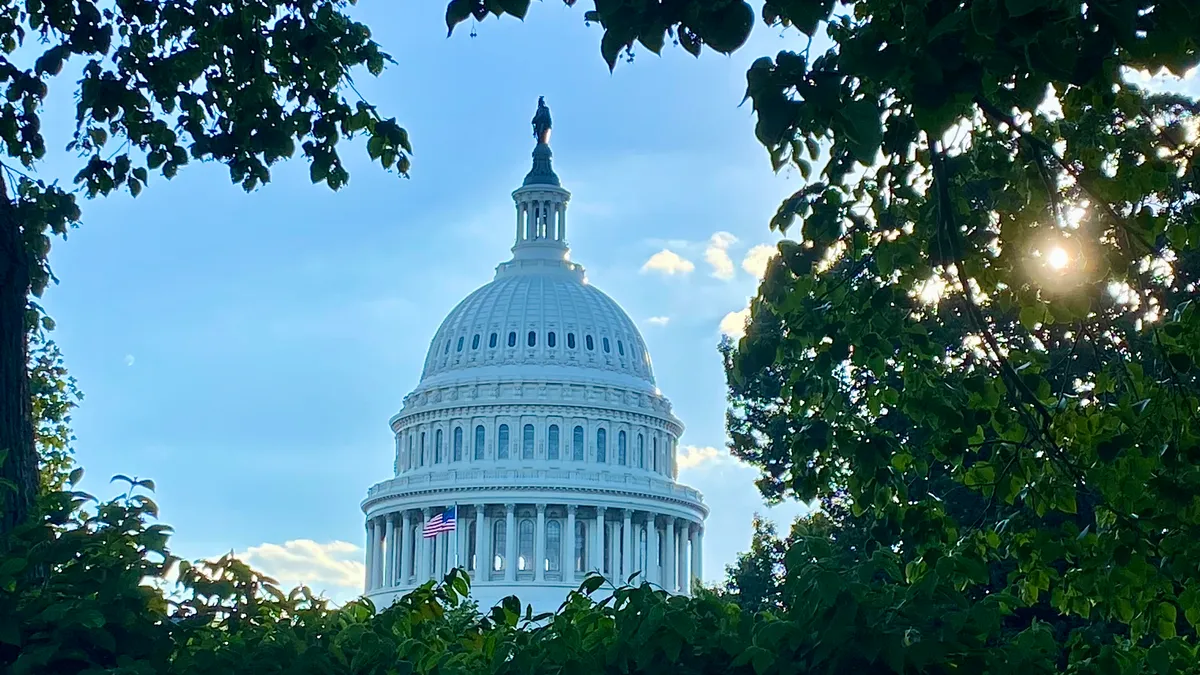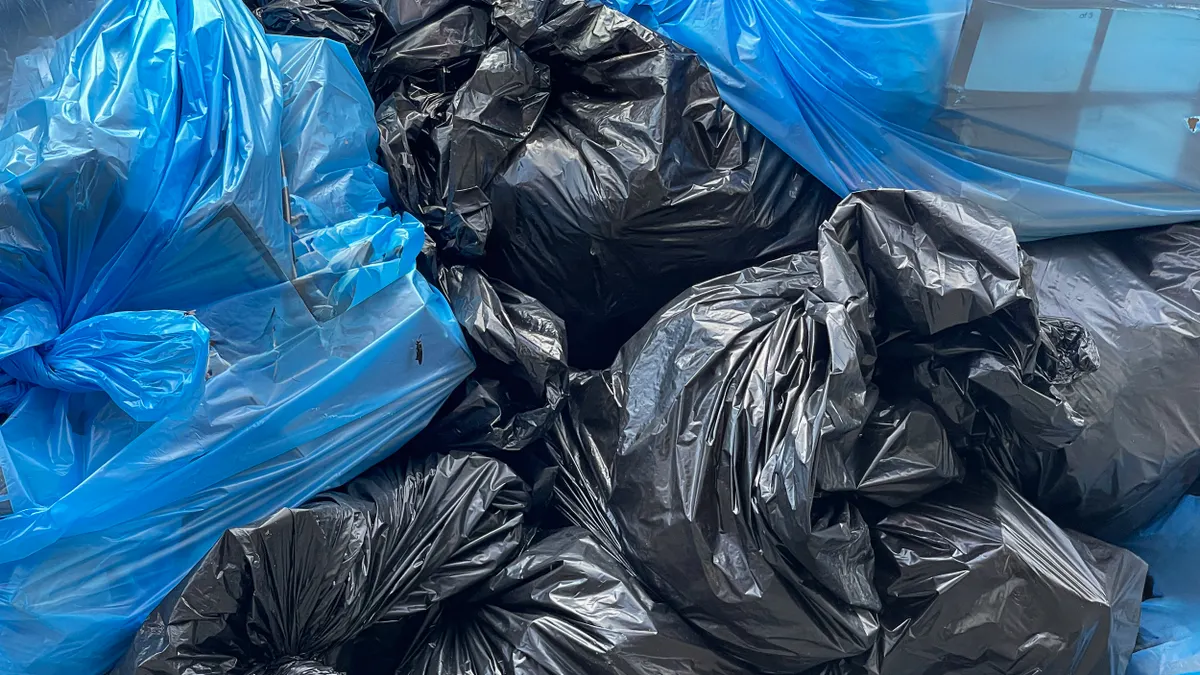The 118th Congress kicked off on Tuesday, marking a new chapter for waste and recycling legislation.
During the previous session, Congress introduced and debated a significant volume of bills, called for action on plastic pollution, held multiple waste-related hearings and clashed over nominations to a key position within the U.S. EPA. The House has since shifted control from Democrats to Republicans, creating new uncertainty over how future waste and recycling bills decisions could fare.
Here’s a look at some of the progress — and roadblocks — the previous Congress had in 2022 and what that could mean for the new session.
Annual appropriations process bumps up EPA budget but raises chemical recycling concerns
The $1.7 trillion spending bill President Biden signed into law last week includes $10.1 billion for the U.S. EPA, which is a $576 million increase over 2022. It’s just short of the $11.88 billion the EPA requested for the year.
Highlights include $108 million for environmental justice initiatives, an increase of $8 million from the 2022 budget. That includes $3 billion for environmental justice and climate justice block grants. The EPA has said it plans to make EJ a bigger, more permanent priority in its daily operations.
The budget bill also calls on government agencies and offices that work with food service providers to eliminate or reduce plastic waste in food packaging by researching biodegradable alternatives and by increasing recycling and composting opportunities. Some lawmakers have repeatedly called on the federal government to stop purchasing single-use plastic items.
Environmental groups like the Ocean Conservancy say the budget bill is a step forward in preventing the use of chemical recycling technologies, particularly gasification and pyrolysis. Though it’s not mentioned in the budget bill itself, the Ocean Conservancy said language included in a budget appropriations committee report asks the EPA to keep regulating pyrolysis and gasification as municipal waste combustion operations. Plastics industry representatives want the technologies to be classified as manufacturing.
“This boils down to Congress formally recognizing that harmful chemical recycling technologies are not true recycling and do not move us closer to a circular plastics economy,” said Anja Brandon, the organization’s associate director of U.S. plastics policy, in a statement.
Numerous environmental groups and lawmakers have weighed in on this debate in recent months. The EPA opened a formal rulemaking process last year to determine how to regulate the technologies, saying it has received a significant number of questions on the topic, “especially with respect to plastics recycling.” The debate over chemical recycling’s merits also took center stage during a Senate hearing in December.
Meanwhile, the American Chemistry Council has helped pass laws in 21 states to regulate chemical recycling sites as manufacturing facilities.
Bipartisan recycling bill package stalls despite quick passage through Senate
Despite bipartisan support, support from waste and recycling industry stakeholders and a relatively fast track through committee hearings, a package of bills meant to strengthen recycling infrastructure and gain more precise recycling data failed to pass in 2022.
The Recycling Infrastructure and Accessibility Act, meant to offer grants for infrastructure projects in rural or underserved areas, and the Recycling and Composting Accountability Act, which calls for better recycling and waste-related data collection, both passed the Senate in July. The bills could return in 2023.
The infrastructure bill received widespread support from waste companies including WM and Recology, plastics groups like ACC, trade associations and equipment manufacturers. The data bill also received hearty support, mainly from trade groups, the plastic industry, municipalities and some MRF operators.
The bill package joins the ranks of numerous other federal bills Congress introduced in 2022 that didn’t pass, including several bills meant to target plastic pollution and reduce waste.
Exceptions that did pass include the Strategic EV Management Act, signed as part of the annual defense budget, which names EV battery recycling a priority. The waste industry applauded the signing of the CHIPS and Science Act of 2022 this summer because it could speed up microchip production needed for equipment and trucks. The Inflation Reduction Act contained several tax credit provisions that landfill operators and the biogas industry see as beneficial.
Food Donation Improvement Act could reduce food waste
Another notable development was the signing of the Food Donation Improvement Act, a bill to expand food donation efforts and reduce food waste. Biden signed it into law in the waning days of the session as part of the omnibus budget bill.
The law is meant to make it easier for businesses and organizations to donate food by updating liability protections in the Bill Emerson Good Samaritan Food Donation Act. Better legal protections are meant to incentivize food donations over simply throwing the food out, supporters say.
“If you go behind almost any restaurant, grocery store, or catering company in America, you’ll find a dirty little secret: food waste,” tweeted Rep. Jim McGovern, D-Mass., a sponsor of the bill, in December.
Updated liability protections will cover food donors such as grocery stores, restaurants, caterers and education institutions when they give food directly to a person in need or when a recipient pays a reduced cost.
Bill supporters included the Natural Resources Defense Council, the Harvard Law School Food Law and Policy Clinic, Weight Watchers, Grubhub and the World Wildlife Fund. Supporters say broadening protections to include more types of food donations can help prevent hunger while also helping the EPA reach its goal of reducing food waste by 50% by 2030.
No progress on Carlton Waterhouse’s EPA nomination
Carlton Waterhouse’s nomination as the assistant administrator of the EPA’s Office of Land and Emergency Management remained in limbo in 2022. Biden first nominated him in 2021, but his nomination has failed to pass through the Senate Committee on Environment and Public Works due to a split vote. The committee tied on the decision in December 2021 and then again in April 2022.
Waterhouse, currently OLEM’s deputy assistant administrator, has named per- and polyfluoroalkyl substances (PFAS) and environmental justice issues among his top priorities in the expected role. It’s not clear when his nomination could come up for a vote again, or whether the Democrats’ 51-49 control of the Senate in 2023 could help eliminate the roadblocks.



















